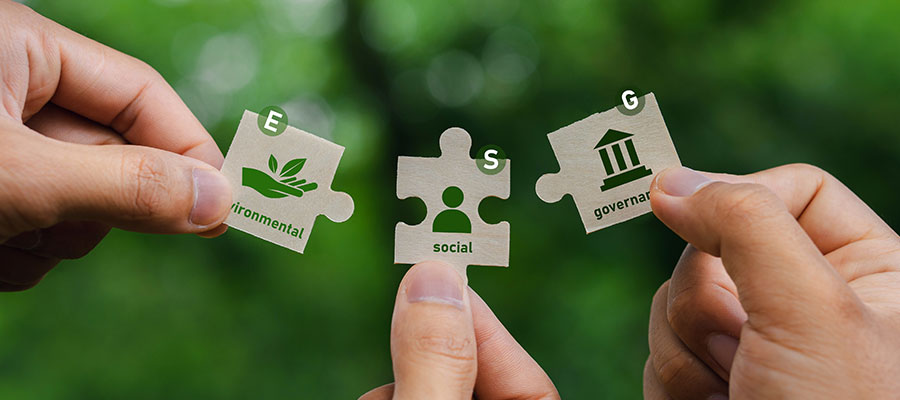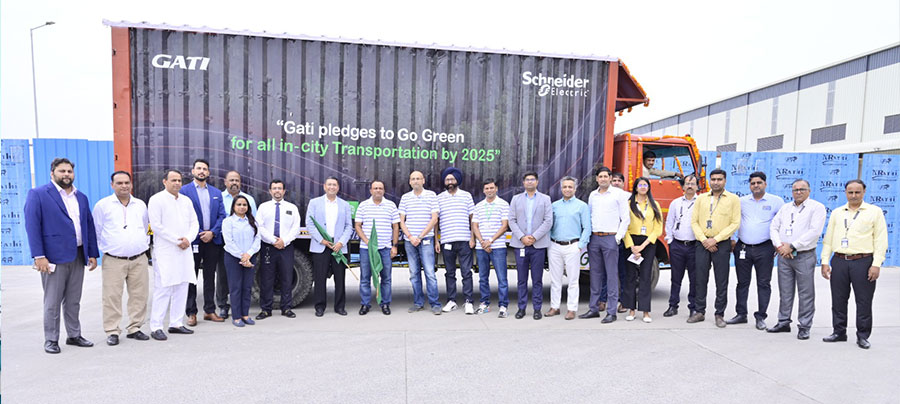The world is heating up. Carbon, the primary greenhouse gas that was pulled out of the atmosphere by plants millions of years ago, is being re-released through the burning of fossil fuels at an alarming rate – enough to cause the annual global temperature to increase. From the 1960s to 2022, there has been a three-fold rise in carbon dioxide emissions from 11 billion tons to around 36.6 billion tons, as per the Global Carbon Budget 2022. The logistics sector being one of the major users of fossil fuels, especially surface express, it is imperative for logistics businesses to take immediate efforts to reduce their emissions. Taking a lead in this direction is Gati, India’s premier express distribution company.

Pirojshaw Sarkari (Phil), the CEO and Managing Director of Gati-KWE has been unequivocal on the company’s commitment to enabling businesses with green mobility. “We are committed to our vision to offer green express logistics solutions and support the government’s goal to cut the net carbon emissions to zero by 2070. As a part of our ESG initiatives, we have plans to convert our entire pickup and delivery fleet to alternative fuel by 2025”, he quotes.
Alternatives to fossil fuel

Making a headway in its commitment to reduce carbon emissions, Gati has introduced EVs for first and last mile deliveries, with more than 100 EVs deployed, in an introductory phase, across the country. Further, with an MoU with clean energy solutions provider, Gentari, Gati is adding another 500 electric cargo vehicles to its existing fleet.
Enabling businesses to go green

In fact, the express distribution major has been supporting Swedish furniture giant, IKEA’s mission to be 100% zero emission in home deliveries by 2025. In 2019, Gati started with two electric vehicles which contributed to 2% of all home deliveries in Hyderabad, India. Today, 61% of all deliveries from the IKEA Hyderabad store take place through electric vehicles. This EV-led last-mile delivery partnership was expanded for the IKEA Nagasandra store Bengaluru, by deploying electric three-wheeler cargo vehicles. There are also plans to onboard larger-capacity, four-wheeler cargo vehicles in the near future.

Recently, Gati also collaborated with Schneider Electric to power their deliveries with alternative fuel compressed natural gas (CNG) vehicles, to go green for all in-city transportation by 2025.
Boosting sustainability
Further, the enhanced efficiency afforded by network optimization, optimal routing schedules, efficient utilization of trucks and resources, implemented basis the rich insights mined from operations data, and integration of digital tools and platforms for real-time information sharing also help to reduce emissions.
With Care for Environment and Society enshrined in its very ethos, and a clear focus on ESG, the team also comes together to raise awareness on environmental conservation, and this World Environment Day, facilities across India took the initiative to plant trees at their premises in the bid to give back to the planet.
Moreover, a number of sustainable features and measures are implemented at offices, warehouses and facilities, such as the use of solar panels, polycarbonate roofing to maximise natural light and save electricity, sewage treatment plants, rainwater harvesting to save water, etc.
Gati has adopted a multi-pronged approach to reduce its impact on the environment, that range from optimizing operations with environment friendly options, to taking various other smaller actions that come together to create a wider impact.


















